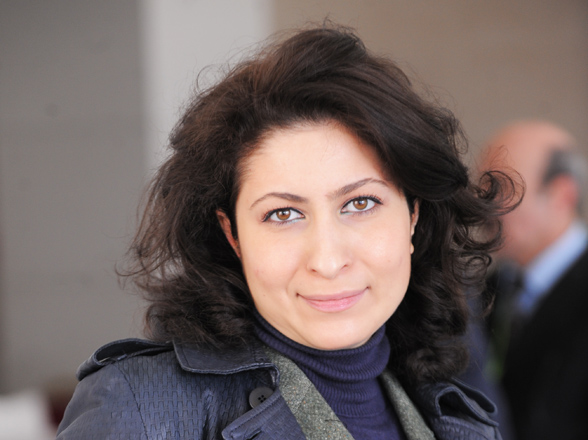ID :
389088
Thu, 11/26/2015 - 12:14
Auther :
Shortlink :
https://oananews.org//node/389088
The shortlink copeid
Attack on Russian warplane – Turkey’s reverence that is not needed by West

Baku, Azerbaijan, Nov. 25
By Elmira Tariverdiyeva – Trend:
Ankara, historically, has been not only a traditional ally, but also a traditional rival of Moscow on the southern frontiers.
And Turkey’s recent downing of a Russian Su-24 warplane has become a signal to the world that the cautious friendliness between Ankara and Moscow is no more than a strategic wait-and-see attitude.
The response by the Turkish army to Russia’s presence in the skies of the region, which is also a response of the NATO army as Turkey is an Alliance member, can be seen as a reverence to the West.
However, this reverence isn’t only in vain, it is also dangerous, and both the EU and the US understand this well.
All these years Turkey’s relations with Washington and Brussels have successively deteriorated against the backdrop of Ankara’s EU aspirations and the EU members’ unwillingness to see Turkey among their ranks.
And now, after the start of the Syrian conflict, the West and Turkey, for the first time in many years, have one common desire – to remove Syrian President Bashar Assad from the political arena of the Middle East.
Turkey, which is so seriously aspiring to become a regional power influencing the situation in the Middle East, understands that the presence of the Russian army in the region reduces this influence.
Turkish leader Recep Tayyip Erdogan himself, one of the most implacable enemies of Assad, apparently planned that Sunni Syria without a leader will not only become a political outpost of Turkey, but perhaps even return under its rule.
In this regard, Turkey is irritated by the fact that Russia and Iran act as a united and strong enough front to support Assad.
That’s where Ankara’s desire to show its military power and influence in the region, as well as to demonstrate that its actions are supported by the West, has played a cruel joke on the country.
The attack on the Russian plane became a kind of warning to Moscow that there is a strong Turkish army on the borders of Syria that can compete for influence in the region.
In addition, the demonstration of force became a message for the West about the fact that Turkey is on the edge of NATO and observes the interests of the Alliance.
However, Ankara has miscalculated here a little, as NATO didn’t need such a provocative move against Moscow now. This became clear following an emergency meeting of the NATO Council in Brussels, at which the Secretary General of the military bloc Jens Stoltenberg made a cautious statement in which he urged Ankara and Moscow to take steps to de-escalate the potential conflict.
A very bad time was chosen for shooting down the Russian warplane. Because, French President Francois Hollande embarked on a tour this week for creating a single coalition against the IS terrorist group (ISIL or ISIS) and Russia, where Hollande will arrive on Nov.26, plays a significant role in this coalition.
It is obvious that Turkey’s actions over Syria will not only seriously deteriorate Russian-Turkish relations, but also will negatively affect Moscow’s relations with other NATO member states.
This will in turn create obstacles to forming a great coalition against the IS which doesn’t meet the interests of Europe intimidated with terrorist threats.
It seems that this step taken by Ankara can even more isolate it in Syrian issue, and NATO will not support its desire to oust Russia from Syria, until the counter-terrorist operation ends with victory of the coalition forces.
---
Elmira Tariverdiyeva is the head of Trend Agency's Russian News Service
Follow us on Twitter @TRENDNewsAgency





